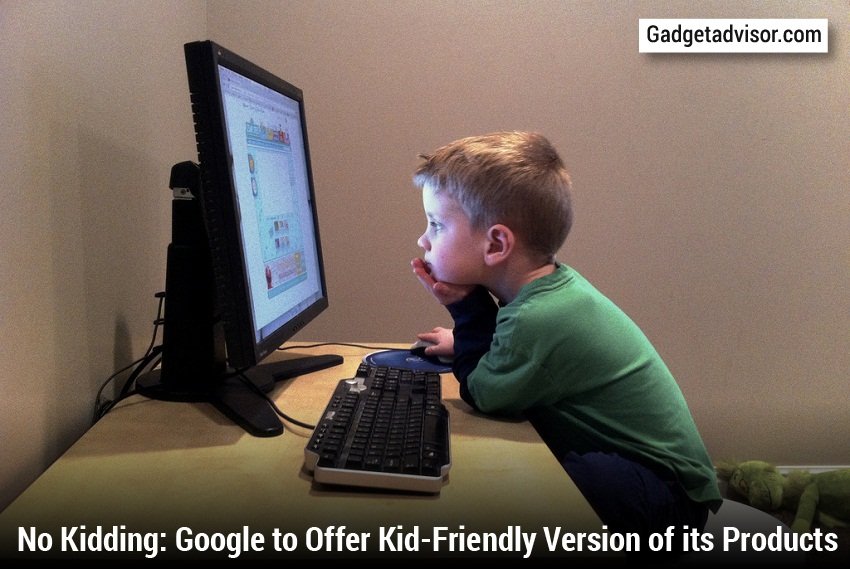Google is planning to offer kid-friendly versions of its products in the near future, perhaps as early as next year. The mega corporation’s intentions of making itself more kid-friendly were revealed by Pavni Diwanji -VP of engineering at Google- in an interview with USA today. Cyberspace was rife with rumors this past year about Google developing a child-friendly version of YouTube for young kids, so this announcement doesn’t exactly come as a surprise to anyone.
The company hasn’t revealed any significant details about the project, and neither has it specified a fixed timeline for the release. Experts believe, though, that Google will probably roll out kid-friendly versions of its most popular products, like Chrome and YouTube, sometime next year. This is the first time Google is planning something on this scale solely for kids. It has hosted events for kids before, of course (like Doodle 4 Google), but kids have never been a major target demographic for the company.
Catching Them Young
Google’s new child-friendly stance has been inspired by the undisputable fact that a large number of Google product users are now kids. In the interview, Diwanji explained that kids are exposed to the same content as adults, content that may not always be what they’re looking for and, sometimes, content that may not be suitable for their development either. Google, through its drive, is planning to create a set of tools that will give kids access to suitable content, allow parents to oversee their kids’ use of the content and generally make the experience better for everyone involved.
Google has also acknowledged the fact that a kid’s view of the world is very different from an adult’s view. In the interview, Diwanji talked about how children use the internet very differently than adults. She cited the example of her young daughter, who typed in “trains” in Google search, hoping to find info about Thomas the Tank Engine. Instead, she was shown Amtrak train schedules as a result, which left her surprised and doubting Google’s intelligence as a search engine.
To help it with its task of making its products kid-friendly, Google will probably use research data from the place it calls the Kids Studio. The room is located at its headquarters in Mountain View, California. Here, Google encourages kids of its employees to play with or work on a selection of projects.
Courting Controversy?
The FTC (Federal Trade Commission) in the past has shot down attempts by several companies to collect information from young kids without parental consent. Thanks to their efforts, and the efforts of other such organizations, companies have generally avoided targeting products at kids below 13 years of age in the past. The President of the Electronic Privacy Information Center, Marc Rotenberg, was quoted as saying that “young children, as an age group, are the most susceptible to audio-visual targeting and it was everyone’s desire to live in a world where they aren’t being bombarded with useless products.”
Diwanji was quick to acknowledge that Google’s move to target their products at kids may not be welcomed by most parents. She opined that it is in an unavoidable fact today that even very young kids have access to technology. Google, according to Diwanji, wants to make sure the way that kids use technology is beneficial to them and helps teach them right from wrong. She also promised that Google plans to give parents complete control over their kids’ activities when they’re using Google products.
The Google Generation
Google may be entering dangerous waters with its decision to target young kids with its products. Parents are a fiercely protective bunch when their kids are threatened, even if we’re talking about something as (comparatively) trivial as privacy intrusion. Google is infamous for collecting data from its users and selling it to advertisers. Could we safely assume that’s what it will do with the data it collects from its youngest users? Perhaps it will, or perhaps it will use the data to give kids a better experience. However, it’s too early yet to speculate about Google’s intentions. Only time will tell if Google is serious about making kid-friendly products that are all about helping a child develop his or her potential or if it is planning to drive up revenue by targeting an untapped market.

